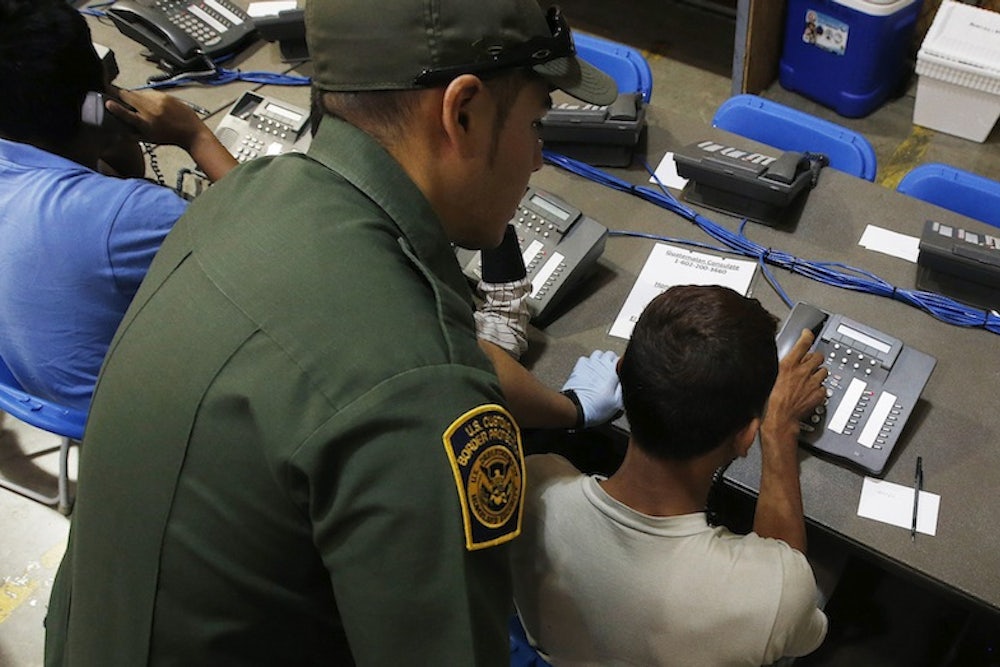Imagine you’re a ten-year-old child, standing before a judge in immigration court. You’re by yourself. You’re in a strange country. You don’t speak the language or know the law. And if you can’t convince the judge you have legal standing to stay in the U.S., you will be deported.
For thousands of kids who have crossed the southern border, this isn’t a hypothetical. It's really happened to them. It’s the way our immigration system works now. And it’s a practice a group of advocacy groups are teaming up stop.
This week, the American Civil Liberties Union, American Immigration Council, and other immigration advocacy groups filed a class-action lawsuit against the Attorney General’s office, arguing that this setup is unconstitutional. The court system works differently for immigrants than it does for citizens. Undocumented children are treated as “adults in miniature.” And unlike citizens who have a right to a public defender if they cannot afford a lawyer, undocumented adults have no such right. The lawsuit argues undocumented children deserve to be represented by a lawyer in a legal system that “rivals the Internal Revenue Code in its complexity.”
The lawsuit has specific plaintiffs—a group of children, ages ten to 17, who face upcoming proceedings but have no lawyers to represent them. “Each [child] will be required to respond to the charges against him or her, and, in theory, will be afforded an opportunity to make legal arguments and present evidence on his or her own behalf,” the complaint says. “But in reality those rights will be meaningless because children are not competent to exercise them.”
They’re not American citizens, obviously, so why do they deserve representation? One reason is that many of them have fled violence in countries like El Salvador, Honduras, and Guatemala. That means they may qualify for asylum under immigration law. An example is one of the plaintiffs, a ten-year-old boy from El Salvador, who watched his father’s murder and who says his life has been threatened by gang violence.
Facts like that might mean the difference between deportation and asylum. But the deciding factor frequently is something else entirely—whether a child has a lawyer’s help. The lucky ones have family or friends in the U.S. who can pay for representation by private lawyers and, when children are represented, they are four times as likely to be granted asylum. But fewer than half of unaccompanied minors have legal representation.
The lawsuit comes a day after President Barack Obama submitted his $3.7 billion plan to Congres to process the 74,000 children that are expected to cross the southwestern border by the end of this year. A small portion of these funds—$15 million—will be directed to providing legal representation for some children. Activists say this doesn’t come close to being enough, and lawyers doing the work pro bono can’t make up the difference. Advocates also worry that Obama is preparing to expedite the process of hearing cases of children and then deporting them to their countries.
The goal of the lawsuit is to force government’s hand—to make sure that courts insist upon giving undocumented children they representation they need and deserve.
